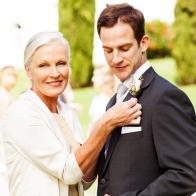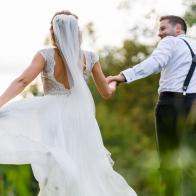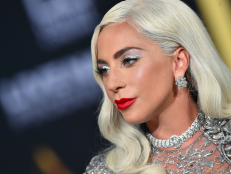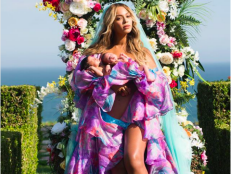10 Inspirational Black LGBTQ Icons Who Paved the Way
They opened the door for others to be bold and speak up.

Related To:
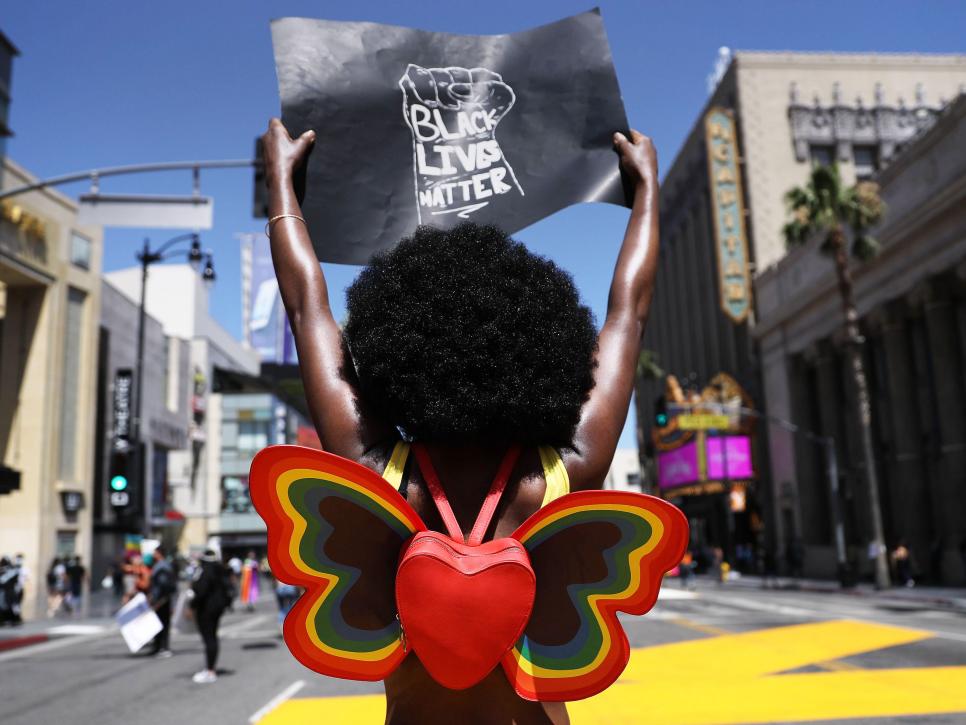
Photo By: Mario Tama
Photo By: Robert Alexander
Photo By: Instagram: @swanngalleries
Photo By: Jack Vartoogian/Getty Images
Photo By: Michael Ochs Archives
Photo By: Patrick A. Burns
Photo By: Instagram: @nyclgbtsites
Photo By: Bloomberg
Photo By: Bettmann
Photo By: Hulton Archive
Photo By: Michael Ochs Archives
10 Black LBGTQ Icons Who Changed the World
February is Black History Month! In light of this time of year, we’re sharing 10 queer Black pioneers who paved the way for equality and justice, and whose contributions the LGBTQ community will go down in history.
Audre Lorde
As a Black feminist, poet, and member of the queer community, Audre Lorde used her creative works to highlight the struggle for liberation and those oppressed. Born in New York to West Indian parents, Lorde studied at Columbia University before becoming a librarian, and later an English Literature professor at Hunter College. With 15 volumes of poetry, several essays, and her biomythography: Zami: A New Spelling of My Name — a combination of her biography, myths, and history — she became the Poet of the State of New York from 1991 to 1993. Her work and teachings made a strong impact on the Black lesbian community and other LGBTQ people of color.
Marsha P. Johnson
Johnson was a transgender woman and activist for trans people of color. Born Malcolm Michaels, Jr., Johnson was a leading figure during the Stonewall riots in NYC’s Greenwich Village in 1969, where LGBTQ activists protested the police raid of the popular gay club, the Stonewall Inn. With her friend and fellow activist Sylvia Rivera, Johnson co-founded the Street Transvestite Action Revolutionaries (STAR), an organization that uplifted queer communities in New York, Chicago, California, and England in the early 1970s before disbanding. Despite her struggle with mental illness, Johnson was a pillar for her community — serving as "drag mother'" and helping homeless LGBTQ youth.
Alvin Ailey
Dance lovers might be familiar with choreographer, director, and dancer Alvin Ailey. Founder of the Alvin Ailey American Dance Theater in New York City, Ailey used his experience growing up in the rural South and passion for dance to inspire Black creatives to push past the racial inequality facing them. He founded his dance company in 1969. He was awarded the Kennedy Center Honor in 1988 and the Presidential Medal of Freedom years after his death.
James Baldwin
Through his poems, novels, essays, and speeches, James Baldwin was a powerful voice of the civil rights movement. Baldwin was the grandson of a slave, growing up in poverty in Harlem with his parents and nine siblings. He used his creative works to express the pain, struggles, and journey of Black Americans. His 1953 novel, Go Tell It on the Mountain, is recognized as an American classic. Throughout the years Baldwin traveled to Switzerland, Paris, and Istanbul — writing work that explored homosexuality, racial tension, and interracial relationships.
Bayard Rustin
Bayard Rustin was a civil rights and LGBTQ activist who organized the 1936 March on Washington — advocating for the civil and economic rights of African Americans. Rustin was a key advisor to Dr. Martin Luther King Jr. in the 1960s, teaching King how to fight for equality through non-violent yet organizational ideas of resistance. In 1956, he helped Dr. King stage The Montgomery Bus Boycott in Alabama — known for being the first large-scale demonstration against segregation.
Storme DeLarverie
Storme DeLarverie is known for possibly throwing the first punch that sparked the Stonewall riots in 1969. DeLarverie traveled with the Jewel Box Revue, a touring company featuring drag performers. From 1955 to 1969, DeLarverie acted as the MC for the company and was the only male impersonator in the show. After the Stonewall uprising, she joined the Stonewall Veteran’s Association, acting as Chief of Security and Ambassador. Throughout the rest of her life, she was an avid participant in The NYC Pride Parade and continued fighting for LGBTQ rights.
Barbara Smith
Barabra Smith is a pionering lesbian activist who helped usher Black feminism into the mainstream. As an author and educator, Smith co-founded the Combahee River Collective, an organization fighting for the equality of Black women and lesbians. Active between 1974 and 1980, the group is known for creating the Combahee River Collective Statement, a major document in developing modern Black Feminism. With friend and fellow LGBTQ member Audre Lorde, Smith founded Kitchen Table: Women of Color Press — the first American publisher by women of color for women of color.
Angela Davis
Born in the "Dynamite Hill" area of Birmingham, Alabama in 1944 — named due to the Klu Klux Klan’s history of bombing the area during the civil rights movement — Angela Davis is an activist and scholar who continues to fight against racial injustice. She was inspired to join the civil rights movement after the 1963 bombing of a Black church in her hometown that killed four girls. Davis first joined the Student Nonviolent Coordinating Committee before transitioning to the Black Panther Party — influenced by the teachings of Black Power advocates. Her work revolves around class, race, feminism, and the U.S. prison system.
Langston Hughes
The lives and struggles of African-Americans are at the forefront of Langston Hughes’ work. With a career spanning over five decades, the poet, musician, and playwright was a central figure during the Harlem Resistance — describing the influx of Black creativity in Harlem during the 1920s. Hughes was the first Black American to earn a living from only writings and lectures. Some of his books included A Pictorial History of the Negro in America and The Poetry of the Negro — both documenting the history of Black culture and literature.
Ma Rainey
If you haven’t already, watch Ma Rainey's Black Bottom on Netflix, a movie highlighting the life of blues singer Gertrude "Ma" Rainey. Known as the "Mother of Blues," Rainey was a bisexual singer who used her love of music to capture the experiences of Black Americans and same-sex relationships. She inspired generations of musicians, such as Louis Armstrong and rock star Janis Joplin. Rainey’s venues were always packed, and her powerful voice, commanding presence, and flashy attire made her an influential figure in the world of blues.
YOU MAY ALSO LIKE: How to Celebrate Juneteenth This Season, 10 Children’s Books About Race, 25 Black-Owned Baby and Kids' Brands Parents Love









.jpg.rend.hgtvcom.196.196.suffix/1725650866453.jpeg)






